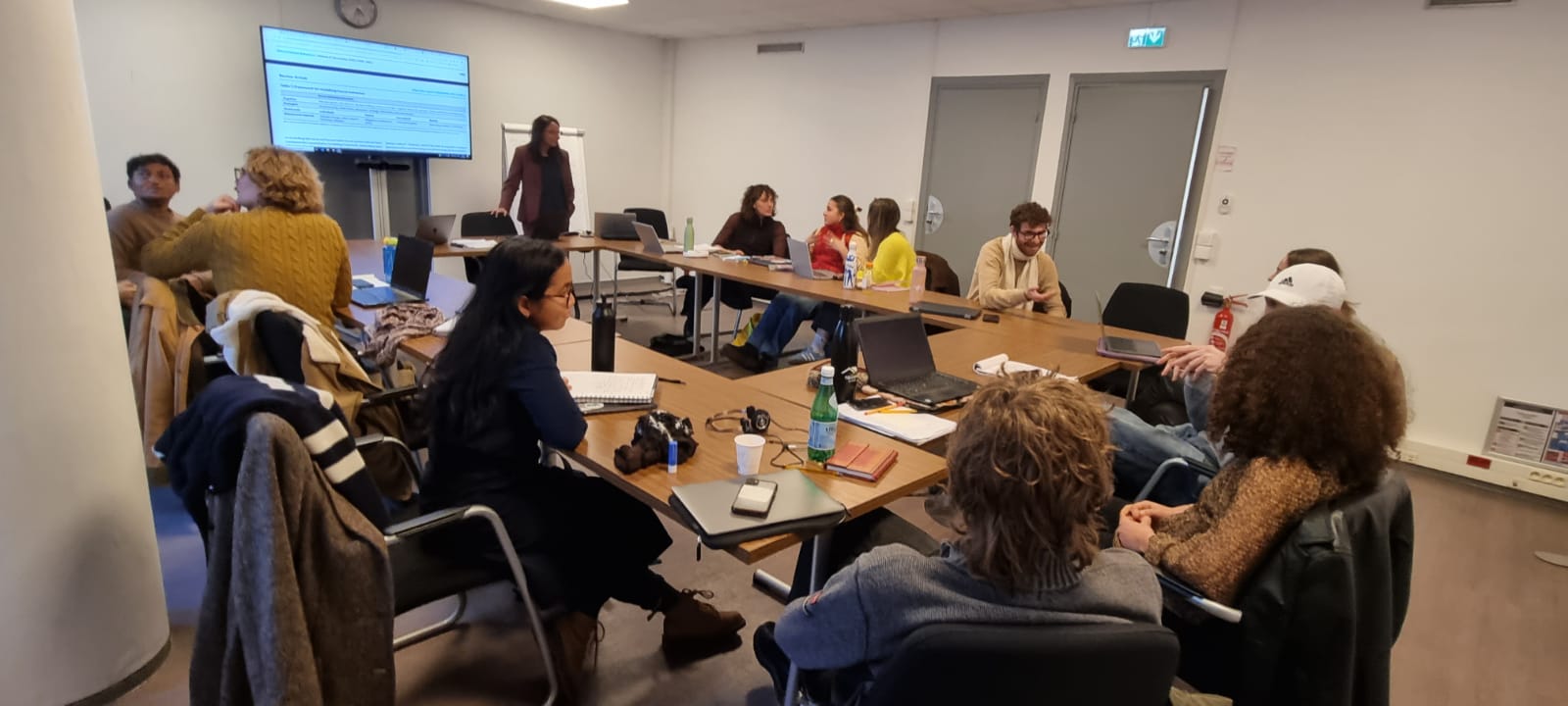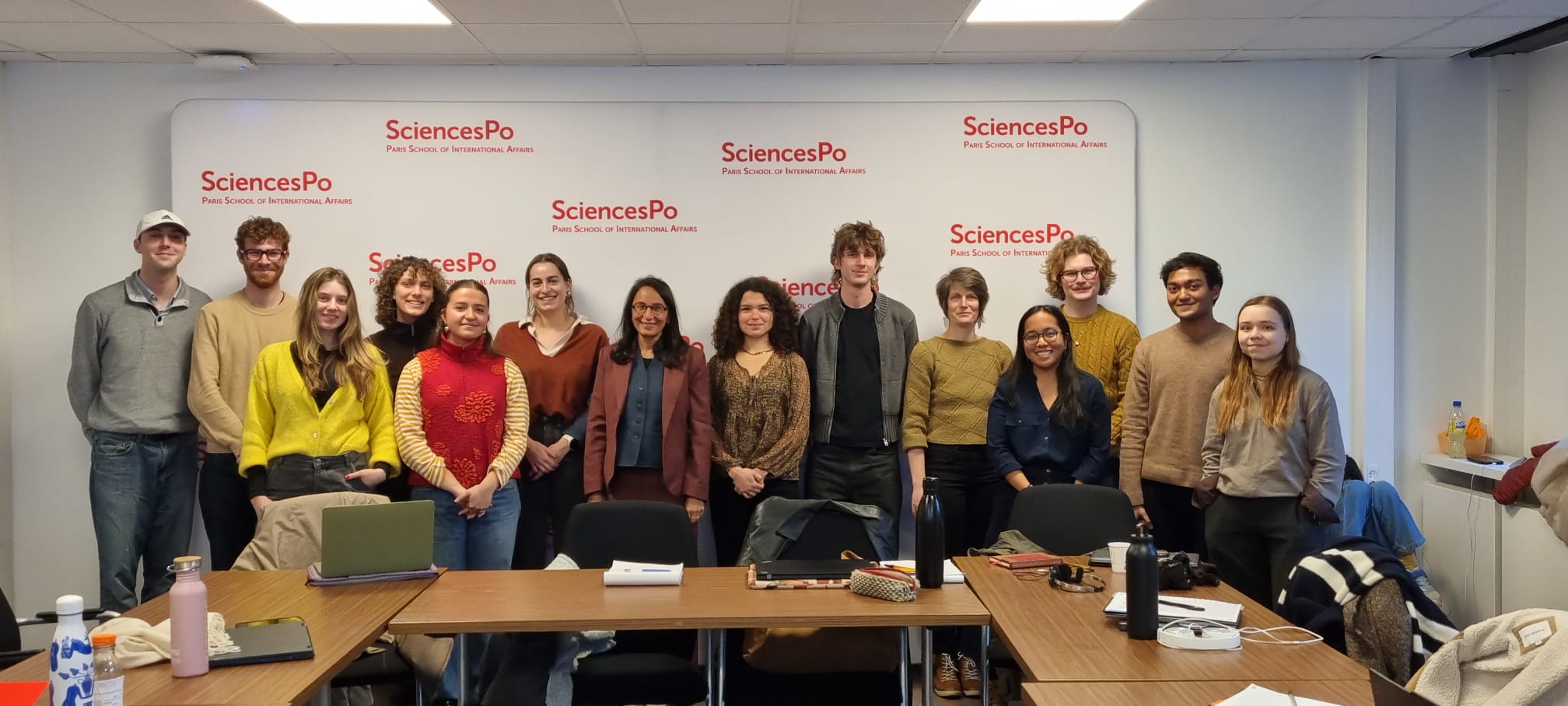As part of the second part of Prof. Dr. Madhur Anand’s CARE Visiting Fellowship, Sciences Po recently had the pleasure of hosting a workshop exploring the integration of social and natural sciences in understanding and addressing climate change. While the scientific foundations of climate change are well established, humanity continues to struggle with adapting to its accelerating impacts—fires, floods, droughts, and beyond. This workshop invited students to examine the critical role of social processes in shaping effective climate responses.
Exploring the Social Dimensions of Climate Science
In preparation for the workshop, students engaged with key scientific literature and were tasked with identifying new research questions at the intersection of social and natural sciences. During the session, Prof. Anand introduced the concept of incorporating human behavior and social dynamics into mathematical models of climate change. This approach challenges students to rethink traditional climate models by integrating social variables, such as rates of social learning, the quantification of social norms, and decision-making processes.
Thought-Provoking Discussions and Emerging Research Questions
The workshop discussions led to the emergence of compelling research questions, including:
- Are we past the point where social learning can effectively drive climate change adaptation?
- How do sociodemographic factors influence climate response dynamics, particularly across different generations?
- Is science itself a social norm, and if so, how does this affect climate action?
- Should the net cost of mitigation be a function of the number of mitigators in a population?

These inquiries reflect the growing need for interdisciplinary research and highlight opportunities for further collaboration within the CARE community.
A Collaborative and Engaging Experience
The workshop was not only intellectually stimulating but also fostered collaboration among students from diverse academic backgrounds. Engaging discussions, critical reflections, and teamwork characterized the event, reinforcing CARE’s mission of bridging disciplines to tackle pressing global challenges.

We are grateful to Prof. Madhur Anand for her insightful guidance and to our students for their enthusiastic participation. The emerging research ideas will undoubtedly contribute to ongoing and future projects within CARE, and we look forward to seeing these collaborations take shape.